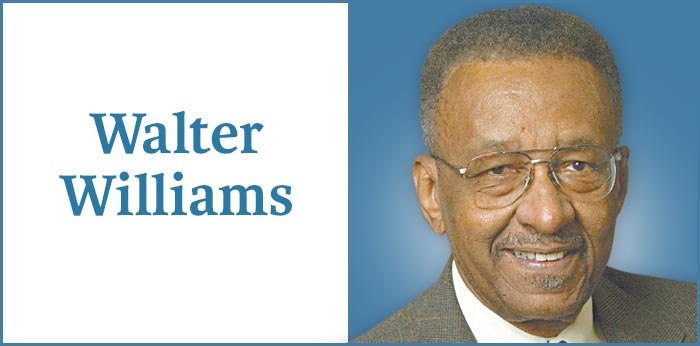When you send your youngster off to college, you might not mind that they will have to walk on eggshells, respect taboos, snitch on fellow students for politically incorrect jokes and learn to use ad hominem arguments as a means to attack ideas they find “disagreeable.”
If that’s your preference, you can choose from a wide variety of America’s top-ranked colleges. If you want to send your youngster to colleges that are seriously committed to civil and diverse debate, pick up a copy of the June 2019 edition of Reason magazine for some guidance.
Professors Debra Mashek and Jonathan Haidt authored “10 Colleges Where You Won’t Have to Walk on Eggshells.” Mashek and Haidt are, respectively, faculty members of Harvey Mudd College and New York University. Haidt is the co-founder of the Heterodox Academy and Mashek is its executive director. Heterodox Academy is nonpartisan and boasts a membership of more than 2,500 faculty and college administrators who advocate for open inquiry and civil disagreement on college campuses and in academic disciplines.
The Mashek and Haidt article discusses 10 colleges in alphabetical order. Among them is Chapman University, whose president, Daniele Struppa, is “an outspoken advocate of academic freedom and freedom of speech.” Struppa has little tolerance for the political correctness so prevalent at most of the nation’s colleges.
The University of Chicago has set the gold standard on free speech and open inquiry. In 2014, it created its “Statement on Principles of Free Expression” (aka the Chicago Principles). Those principles provide the framework for thinking about the importance of dissent as well as the role of the university for establishing the platform for debate.
University of Chicago president Robert Zimmer says, “We have an obligation to see that the greatest variety of perspectives is brought to bear on issues before us as scholars and citizens.”
The Chicago Principles, or substantially similar ones, have been adopted by 55 schools across the nation. In June 2018, the University of Chicago received Heterodox Academy’s Institutional Excellence Award in recognition of its stellar culture and support for open inquiry.
Other colleges listed in the Mashek and Haidt article, where students won’t have to walk on eggshells include Arizona State University, Claremont McKenna College, Kansas State University, Kenyon College, Linn-Benton Community College, St. John’s College, University of Richmond and Purdue University. It’s worth noting that Mitch Daniels is president of Purdue University and former two-term governor of the state of Indiana.
Daniels and his interim provost Jay Akridge wrote this message to the Purdue community: “At Purdue, we protect and promote the right to free and open inquiry in all matters and guarantee all members of the University community the broadest possible latitude to speak, write, listen challenge and learn.”
In my opinion, it is truly a tragic state of affairs when free speech and free inquiry require protection at most institutions of higher learning. Indeed, it has been freedom in the marketplace of ideas that has made the United States, as well as other western nations, leaders in virtually every area of human endeavor. A monopoly of ideas is just as dangerous as a monopoly in other areas of our lives such as monopoly in political power and the production of goods and services.
At the end of Professors Mashek’s and Haidt’s article, they come up with a few suggestions for parents. Visit the Foundation for Individual Rights in Education website to find out about a particular college’s agenda to suppress free speech.
By all means, check out the Heterodox Academy website. Search the college’s website for terms such as “open inquiry,” “freedom of expression” and “free speech.” Examine the college’s calendar of events to see whether speakers with diverse opinions are invited. Visit the campus. Talk with actual students about their experiences.
In this article, Mashek and Haidt give specific questions to ask. I’d add to their list of things to do on a campus visit: Talk to the local police, bartenders and hospital people about the college. They might give you insights that an admissions officer would choose to keep hidden.
[Walter E. Williams is a professor of economics at George Mason University.] COPYRIGHT 2019 CREATORS.COM













Leave a Comment
You must be logged in to post a comment.